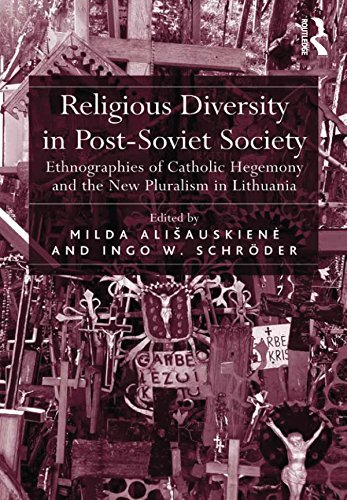Under Communism, religion was suppressed in the formerly Catholic Eastern European country of Lithuania until the 1990s. Milda Ališauskienė tells David Robertson about the religious field like in a country where religion was banned for half of the 20th century. Do we see a simple resurgence of Catholicism, or something more complex? What about New Religious Movements – are there new forms of vernacular Lithuanian religious expression? How does immigration affect this field?
 The second half of the interview discusses the practicalities of how you go about setting up and running a Religious Studies department in a post-Soviet country such as Lithuania. While there was no academic study of religion during the Soviet era, this has also affected the public perception of the need for such a study. This interview presents a fascinating inside look at the study of religion between two hegemonies – Communism and Catholicism.
The second half of the interview discusses the practicalities of how you go about setting up and running a Religious Studies department in a post-Soviet country such as Lithuania. While there was no academic study of religion during the Soviet era, this has also affected the public perception of the need for such a study. This interview presents a fascinating inside look at the study of religion between two hegemonies – Communism and Catholicism.










